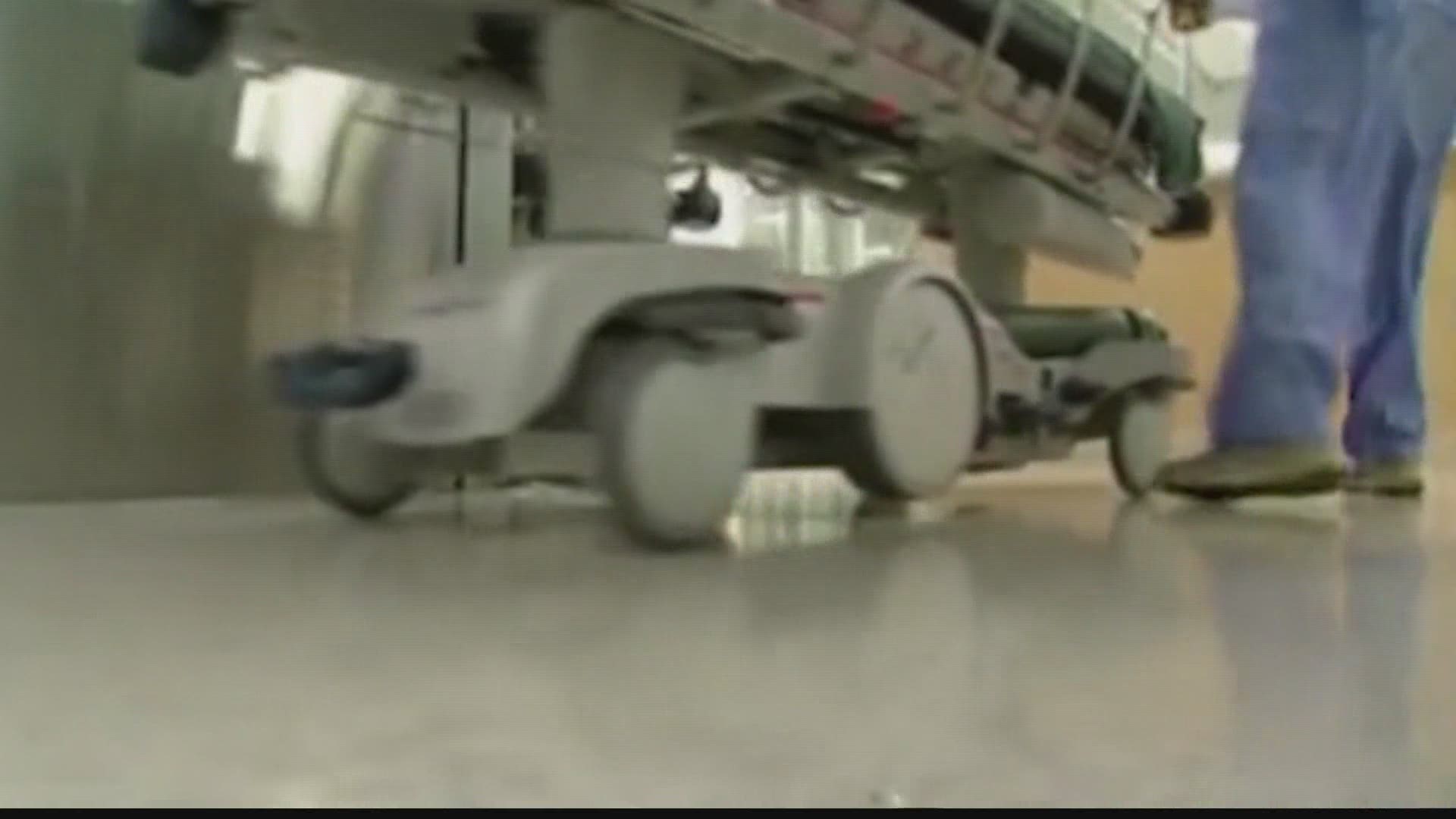HUNTSVILLE, Ala — We’ve all felt the effects of the pandemic, but none probably more than our health care workers. These people who, even during a "normal" year work tirelessly to keep us all safe and healthy, are now under even more pressure and that can start to take its toll.
Our Sydney Stallworth checked in with one Huntsville Hospital nurse who gives us a glimpse at the pressure her team is facing.
Our reporter spoke with Regina Andrews, Charge Nurse in Huntsville Hospital's 6MST Unit. The two met virtually to talk about Andrew's experience during the pandemic. Andrews says, “In my 38 years of nursing at Huntsville Hospital, I’ve never seen so many people dying being as sick as they are. Because, when they’re coming in now, they’re sick.”
Andrews tells us the 6MST Unit is a former cardiac unit that was transformed to exclusively treat COVID-19 patients in mid-April.
She says, “Our unit was kind of like everyone else. It’s kind of thrown at you... We had to learn how to deal with this virus. Nobody really knew about it. As nurses, we had to take a look at all the x-rays and see what was going on with all the patients and their lungs. I mean, this is a lung issue.
She says caring for patients looks a lot different. Andrews explains to our reporter, “Before I can even walk into a room and hand a patient something to drink, I have to totally 100 percent dress out... Patients, when they see us, all they see is our eyeballs and they have to look at them through a pair of goggles or a shield because we’re dressed out so. Therefore, they don’t see much of us. We have to tell them who we are and we have to remind them that ‘We are your nurses and we’re here to help you.’”
Andrews adds, “But yet, they can touch-- they can feel our hands. Even though we have gloves on, they can still feel our hands and sometimes it’s just that touch that they need.”
Nurse Andrews and her team have had to hold some hands in some cases as a patient takes his or her final breaths. She tells our WZDX reporter, “We are a unit that allows families to come in at end of life. So, we are there to help our families. Sometimes the families are scared to come because they’re afraid to get COVID even though their family is dying. We’ve had Zoom meetings with our families. We’ve had Zoom meetings where they can say goodbye. But we also have families that will come in and and be with their family. We have had days where we’ve had families that won’t come so me and another nurse will come in and sometimes we’ll play gospel music just so they can hear some kind of piece and know someone is there holding their hand as they pass away.”
The weight of watching patients die starts to be overwhelming. Andrews says the unit checks in daily and comes together after any losses. She explains, “If we have a death in the unit, we get together and we talk about it. Because, if you don’t talk about it, you’ll take that stuff home with you and you don’t need to do that.” Andrews tells our reporter Huntsville Hospital administration and management have been "very supportive." She adds, “One day, the whole unit was in tears. We lost three patients in one day and we were all bawling. Here comes management and they’re going ‘What can we do to help? Do you need somebody to talk to?’”
Nurse Andrews says her team has learned to lean on one another. She tells our reporter, “We help each other through. If you’re having a bad day, somebody else will pick up your slack.” Andrews says, “Our health care workers, not only here in Huntsville Hospital, but all over the world-- they need more love and support than they’ve ever needed because nobody has ever dealt with what we’re dealing with now.”
The fatigue, anxiety, mental exhaustion can take its toll. Nurse Andrews says there can also be a sense of frustration among health workers when people don’t take the pandemic as seriously as they should. Andrews says, “They’re tired of this. They’re tired of this virus. Some people don’t believe it’s real. It’s real. Come walk in my shoes for a day.”
She begs people to do their part, and assures you these nurses will keep doing theirs. Nurse Andrews tells our reporter “Some days we say ‘Why do we keep doing this? Why don’t we go to a unit that’s much easier?' We can’t do it. We love what we do. Andrews adds, “That’s why you go into nursing, you have love and compassion for all your patients… That’s what we’re here for.”

